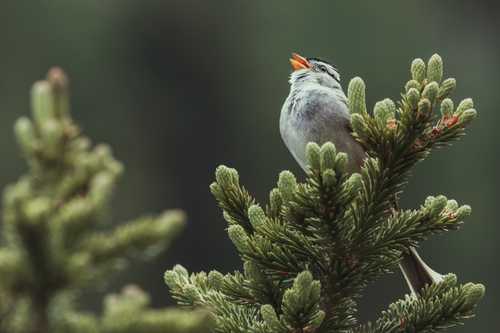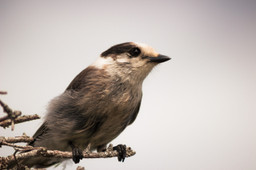
In a follow-up to our recent article on the dawn chorus, earth.fm would like to profile an additional element of birdsong: its recently reported benefits to our mental health.
How does birdsong relate to mental health?
In a 2020 article titled ‘How Listening to Birdsong Can Transform Our Mental Health’, London’s Natural History Museum reported on a survey which saw respondents reporting louder (or at least more noticeable) birdsong during the COVID-19 lockdown. In addition, many participants described birdsong “comfort[ing] and calm[ing] them” during this stressful period.
Environmental psychologist Dr Eleanor Ratcliffe has conducted three studies in which 174 British residents were asked to listen to, rate, and comment on 50 bird sounds from the UK and Australia. While findings did suggest that bird sounds can offer a respite from stress and mental tiredness, effectiveness varied from bird species to bird species and in relation to the connotations individuals held for particular sounds. Certain participants cited chicken vocalizations or the cooing of wood pigeons as being beneficial due to personal experiences and memories involving these sounds. By contrast, the calls of urban pigeons – often characterized as flying vermin – were not equally well received.

The nature of specific birds’ calls was also found to be significant. Ratcliffe states that, “People like listening to bird sounds which are quiet, high frequency or have a level of complexity such as a melody” – whereas “loud, non-melodic, rough, simple or boring” calls are likely to be deemed unpleasant or stressful. Therefore, songbirds’ harmoniousness is prized in a way that, say, corvids’ caws and croaks are not.
Appealing factors also include “sound level, frequency, […] pattern and familiarity”. What is perhaps most notable, though, is that responses to bird sounds hinge upon the listeners themselves. In Ratcliffe’s findings, “Those who appreciated nature benefited the most whereas those who preferred to remain indoors or were noise sensitive felt an indifference or had a negative response.”
To some extent, then, the restorative effectiveness of listening to bird calls relies upon a positive outlook towards them in the first place. However, this does not explain why such sounds can have a beneficial effect. From an evolutionary perspective, it may be that we “have a genetically built-in preference for nature, having spent thousands of years roaming the wilderness before constructing towns and cities”. This may mean that we are predetermined to be attracted to birdsong because (alarm calls aside) it indicates the presence of safety, food, and water.
A second, perhaps complimentary, theory proposes that natural sounds like bird calls allow “us [to] overcome tiredness as it is an easy, and often pleasant, thing to focus on”; our enjoyment of these sounds allows us to mentally recharge in the face of any other mental challenges we may be facing.
The connection of nature to mental health
Existing research already supported the notion that time spent in nature can be beneficial to mental health.
In 1984, “evidence-based healthcare design researcher” Roger Ulrich wrote a paper investigating the effect that hospital patients’ views of nature can have on their recovery rates. This research was based on his own experiences confined to bed as a teenager due to kidney disease, when his view of a pine tree outside helped him to remain positive.
His study bore out his own experience, with findings showing that patients with a view of a natural environment needed less pain relief and even a shorter stay in hospital. The broader concept that nature can reduce stress has since been corroborated by multiple additional studies; the thesis that bird sounds can have a similar effect expands this thinking into the sonic realm.

What concrete effects can nature have?
These studies have shown that interactions with nature can enhance memory and creative capabilities, while also reducing symptoms of depression and sensations of isolation. Engagement with nature can make us feel ‘connected’, “foster[ing] a sense of value for ourselves, others, and the world”. In addition, appreciation for what we can gain from nature increases individuals’ desire to conserve it.
New research
In 2022, the Institute of Psychiatry, Psychology & Neuroscience (IoPPN) at King’s College London carried out further research into the effectiveness of bird calls upon mental health. The findings of its research showed “that seeing or hearing birds is associated with an improvement in mental wellbeing that can last up to eight hours” – including in respondents diagnosed with depression.
Unlike previous studies which “typically relied on retrospective questionnaires or artificial set-ups with little ecological validity”, the IoPPN’s findings came from an app, Urban Mind, which collects real-time data from real-life contexts in order to draw conclusions from users’ environments, lifestyles, and mental wellbeing. By doing so, lead author Ryan Hammoud states, the study “showed [for the first time] the direct link between seeing or hearing birds and positive mood”. He continues, “We hope this evidence can demonstrate the importance of protecting and providing environments to encourage birds, not only for biodiversity but for our mental health.”
Senior author Andrea Mechelli expands: “Our study provides an evidence base for creating and supporting biodiverse spaces that harbour birdlife, since this is strongly linked with our mental health. In addition, the findings support the implementation of measures to increase opportunities for people to come across birdlife, particularly for those living with mental health conditions such as depression.”
Roger Ulrich’s findings have since seen the design of hospitals adjusted accordingly; we can only hope that the IoPPN’s recommendations have a similar effect upon urban planning, conservation, and the management and treatment of mental health issues:
“Visits to habitats with a high degree of birdlife could become part of social prescribing schemes, playing a role in preventing mental health difficulties and complementing more traditional interventions. Paramount to all of this, will be the adoption of environmental and wildlife protection policies for the preservation and enhancement of a mosaic of habitats in rural and urban settings.”
How to engage with nature
The Natural History Museum suggests walks in the park, bird watching, gardening, fruit picking, and feeding animals as methods we can use to connect with the natural world. Joining green space or beach litter-picks also has the additional benefit that altruism has its own positive effects on mental health, such as increasing a sense of purpose. Similarly, even cleaning up after your dog can have this effect, especially given the health risks which dog feces can pose and its negative effect on the environment.
However, as noted by mental health charity Mind, “Many of us do not have a garden. And those of us who live in cities or towns may not live near a park or green space”, while lack of accessibility and the price of transport, plants, or gardening equipment may be prohibitive. Here, Mind suggests ways to reap the benefits of the natural world no matter your circumstances, from finding wildlife in even urban spaces, to gardening swaps or giveaways, accessible green spaces, and ways to bring the outdoors indoors. Additional suggestions such as checking weather forecasts, finding ways to fit nature into your daily routine, and choosing the best timing for you – perhaps, finding out when particular spaces are at their quietest – may also be helpful.
Dangers facing bird populations
While scientific endorsement of the benefits of bird sounds are heartening and significant, we ought not let what we can gain from birds overshadow the destruction we are continuing to wreak upon them.
Researched published just last month, at the time of writing – starkly titled ‘Farmland Practices Are Driving Bird Population Decline across Europe’ – has used “the most recent and largest empirical dataset ever assembled for Europe to investigate the effect of anthropogenic pressures [on birdlife]”. By drawing conclusions from the monitoring of 170 common bird species across 28 countries in Europe over 37 years, it concludes that the detrimental effect of intensified agriculture – particularly the use of pesticides and fertilizers – is even more damaging to bird populations than climate change, urbanization, and changes to forest cover. The UK Guardian reports that, as a result, “the number of wild birds of all kinds across the continent has fallen by more than a quarter since 1980, […] [and] that this decline deepened to more than half among farmland species”.

This reduction is most pronounced among insect-eating birds – commensurate with the “insect apocalypse” reported by The New York Times in 2018: a sixtyfold decrease in arthropod biomass. The agricultural sector’s eradication of insects as pests has caused a trophic cascade – a series of knock-on effects spreading throughout the food chain. The writers of the study therefore stress “the urgent need for transformative changes […], if bird populations shall have a chance of recovering”, particularly in terms of agricultural reform.
As important as it is for us to recognize and gain the benefits which birdsong can have on our mental health, this self-interest should not be allowed to obscure the parlous situation which human activity has brought to bear on bird populations. Shifting baseline syndrome – the way what is seen as normal gradually changes due to faulty or inadequate memory, experience, or knowledge – means that we don’t realize how much the presence of particular bird species has declined, or ceased completely, over even just one or two generations. Please see our dawn chorus article for tips on how to support birds around your home.
Featured photo by Andy Holmes on Unsplash
Earth.fm is a completely free streaming service of 1000+ nature sounds from around the world, offering natural soundscapes and guided meditations for people who wish to listen to nature, relax, and become more connected. Launched in 2022, Earth.fm is a non-profit and a 1% for the Planet Environmental Partner.
Check out our recordings of nature ambience from sound recordists and artists spanning the globe, our thematic playlists of immersive soundscapes and our Wind Is the Original Radio podcast.
You can join the Earth.fm family by signing up for our newsletter of weekly inspiration for your precious ears, or become a member to enjoy the extra Earth.fm features and goodies and support us on our mission.
Subscription fees contribute to growing our library of authentic nature sounds, research into topics like noise pollution and the connection between nature and mental wellbeing, as well as funding grants that support emerging nature sound recordists from underprivileged communities.

